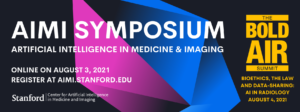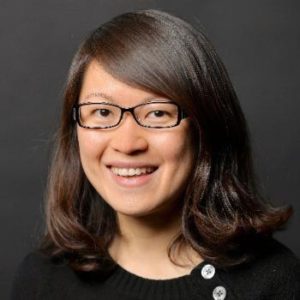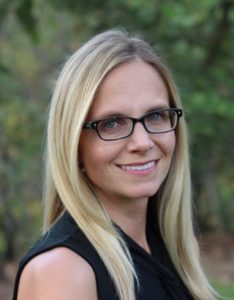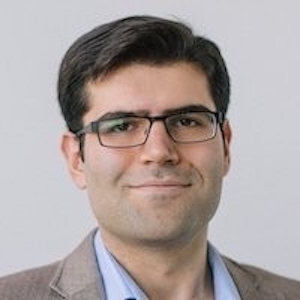
Stanford AIMI Director Curt Langlotz and Co-Directors Matt Lungren and Nigam Shah invite you to join us on August 3 for the 2021 Stanford Center for Artificial Intelligence in Medicine and Imaging (AIMI) Symposium. The virtual symposium will focus on the latest, best research on the role of AI in diagnostic excellence across medicine, current areas of impact, fairness and societal impact, and translation and clinical implementation. The program includes talks, interactive panel discussions, and breakout sessions. Registration is free and open to all.
Also, the 2nd Annual BiOethics, the Law, and Data-sharing: AI in Radiology (BOLD-AIR) Summit will be held on August 4, in conjunction with the AIMI Symposium. The summit will convene a broad range of speakers in bioethics, law, regulation, industry groups, and patient safety and data privacy, to address the latest ethical, regulatory, and legal challenges regarding AI in radiology.

PHIND Seminar Series: Peace of mind for those affected by stroke
Orestis Vardoulis, Ph.D.
Co-Founder & CEO
ZeitMedical
Zoom Webinar Details
Webinar URL: https://stanford.zoom.us/s/94427469356
Dial: US: +1 650 724 9799 or +1 833 302 1536 (Toll Free)
Webinar ID: 944 2746 9356
Passcode: 999031
11:00am – 12:00pm Seminar & Discussion
12:00pm – 12:15pm Reception
RSVP Here
ABSTRACT
There is a growing population of over 10 million Americans that live with an elevated risk of having a stroke.
Each year approximately 1 million Americans survive a stroke or a ministroke, often severely affected by its debilitating effects. A more disabling stroke frequently occurs after the seminal events, leaving patients and their families scarred for life.
TIME = BRAIN. Early hospital presentation is the most critical determinant in good stroke outcomes. However, most patients arrive at the hospital often hours after the event, with less than 10% receiving any form of treatment (thrombolysis / thrombectomy).
As a result, at risk individuals struggle daily with the fear, a stroke might happen during night-time or when they are alone. Unfortunately a stroke that goes unnoticed for hours, is most often not treatable due to the lack of salvageable tissue.
To alleviate that fear, we are creating an AI-powered, smart-headband that analyzes brain waves to detect the onset of an event immediately, and alert the patient, caregivers and 911.
Our stroke detection AI has already been shown to detect ischemia during high-risk surgeries with 90% sensitivity and no false positives.
We have received FDA breakthrough designation for our solution and are currently running a pilot human factors and signal quality study.
Our vision is to provide peace of mind and optimal brain health for everyone.
ABOUT
Orestis is the CEO and Co-founder of Zeit Medical, a telehealth company that offers at home monitoring and alert solutions for patients at risk for stroke. Prior to starting Zeit, Orestis was a Stanford Biodesign Innovation Fellow where his team developed the initial idea about at-home stroke detection. Orestis trained as a Mechanical Engineer, at Aristotle University, Greece, earned his PhD in Biotechnology and Bioengineering at EPFL, Switzerland and conducted cutting edge research in flexible wearable electronics with the Bao Group at Stanford Chemical Engineering. He has authored more than twenty publications in prestigious journals and has filed for a variety of patents at the intersection of materials technology and medical devices. Orestis currently lives in San Francisco, where he also contributes to the UCSF-Stanford pediatric device consortium as a technology advisor. He also maintains close ties with the med-tech and health-tech communities in Switzerland and Greece, contributing to regional Biodesign educational workshops.
Hosted by: Garry Gold, M.D.
Sponsored by the PHIND Center and the Department of Radiology

PHIND Seminar Series: Towards precision diagnostic and prediction of food allergy
Sindy KY Tang, Ph.D.
Associate Professor of Mechanical Engineering, Senior Fellow at the Woods Institute for the Environment and Professor, by courtesy, of Radiology – PHIND Center
Stanford University
Location: Zoom
Webinar URL: https://stanford.zoom.us/s/91932966334
Dial: US: +1 650 724 9799 or +1 833 302 1536 (Toll Free)
Webinar ID: 919 3296 6334
Passcode: 383071
11:00am – 12:00pm Seminar & Discussion
RSVP Here
ABSTRACT
Food allergy has reached epidemic proportions. Accurate in vitro methods that are efficient and easy to use to identify offending food allergens are lacking. Oral food challenge, the gold standard for food allergy assessment, is often not performed as it places the patient at risk of anaphylaxis. As such, food allergy is often identified only after an adverse reaction that could be life-threatening. Our long-term goal is to develop a food allergy diagnostic test that is accurate, safe, rapid, and accessible, so that food allergy can be easily identified prior to the occurrence of an adverse reaction, and that the efficacy of immunotherapy for food allergy can be tracked more effectively. This talk will discuss our recent work on developing such a test. Our approach is based on the Basophil Activation Test (BAT), which measures the activation of basophils in whole blood after stimulation with specific food allergens ex vivo. The BAT has been shown to be highly predictive of allergic reactions. However, the need for flow cytometry has limited its broader use. We are developing a miniaturized, standalone version of the BAT. We envision that the test can be used at the point of care, such as the doctor’s office or at a local pharmacy.
ABOUT
Prof. Sindy KY Tang is the Kenneth and Barbara Oshman Faculty Scholar and Associate Professor of Mechanical Engineering and by courtesy of Radiology (Precision Health and Integrated Diagnostics) at Stanford University. She received her Ph.D. from Harvard University in Engineering Sciences under the supervision of Prof. George Whitesides. Her lab at Stanford works on the fundamental understanding of fluid mechanics and mass transport in micro-nano systems, and the application of this knowledge towards problems in biology, rapid diagnostics for health and environmental sustainability. The current areas of focus include the flow physics of confined micro-droplets using experimental and machine learning methods, interfacial mass transport and self-assembly, and ultrahigh throughput opto-microfluidic systems for disease diagnostics, water and energy sustainability, and single-cell wound healing studies. She was a Stanford Biodesign Faculty Fellow in 2018. Dr. Tang’s work has been recognized by multiple awards including the NSF CAREER Award, 3M Nontenured Faculty Award, the ACS Petroleum Fund New Investigator Award, and invited lecture at the Nobel Symposium on Microfluidics in Sweden. Website: http://web.stanford.edu/group/tanglab/
Hosted by: Garry Gold, M.D.
Sponsored by the PHIND Center and the Department of Radiology

Regina Barzilay, PhD
School of Engineering Distinguished Professor for AI and Health
Electrical Engineering and Computer Science Department
AI Faculty Lead at Jameel Clinic for Machine Learning in Health
Computer Science and Artificial Intelligence Lab
Massachusetts Institute of Technology
Abstract:
In this talk, I will present methods for future cancer risk from medical images. The discussion will explore alternative ways to formulate the risk assessment task and focus on algorithmic issues in developing such models. I will also discuss our experience in translating these algorithms into clinical practice in hospitals around the world.
Keynote:
Self-Supervision for Learning from the Bottom Up
Why do self-supervised learning? A common answer is: “because data labeling is expensive.” In this talk, I will argue that there are other, perhaps more fundamental reasons for working on self-supervision. First, it should allow us to get away from the tyranny of top-down semantic categorization and force meaningful associations to emerge naturally from the raw sensor data in a bottom-up fashion. Second, it should allow us to ditch fixed datasets and enable continuous, online learning, which is a much more natural setting for real-world agents. Third, and most intriguingly, there is hope that it might be possible to force a self-supervised task curriculum to emerge from first principles, even in the absence of a pre-defined downstream task or goal, similar to evolution. In this talk, I will touch upon these themes to argue that, far from running its course, research in self-supervised learning is only just beginning.

PHIND Seminar Series: Topic TBA
Christina Curtis, Ph.D.
Associate Professor of Medicine (Oncology) and of Genetics
Stanford University
Location: Venue coming soon!
11:00am – 12:00pm Seminar & Discussion
12:00pm – 12:15pm Reception
RSVP coming soon!
ABSTRACT
Coming soon!
ABOUT
Coming soon!
Hosted by: Garry Gold, M.D.
Sponsored by the PHIND Center and the Department of Radiology

PHIND Seminar Series: Male Infertility and the Future Risk of Vascular and CV Disease
Michael Eisenberg, M.D.
Associate Professor of Urology and, by courtesy, of Obstetrics and Gynecology
Stanford University Medical Center
Gary M. Shaw, Ph.D.
NICU Nurses Professor and Professor, by courtesy, of Health Research and Policy (Epidemiology) and of Obstetrics and Gynecology (Maternal Fetal Medicine)
Stanford University
Location: Venue coming soon!
11:00am – 12:00pm Seminar & Discussion
12:00pm – 12:15pm Reception
RSVP coming soon!
ABSTRACT
Coming soon!
ABOUT
Coming soon!
Hosted by: Garry Gold, M.D.
Sponsored by the PHIND Center and the Department of Radiology

Saeed Hassanpour, PhD
Associate Professor of Biomedical Data Science
Associate Professor of Epidemiology
Associate Professor of Computer Science
Dartmouth Geisel School of Medicine
Deep Learning for Histology Images Analysis
Abstract:
With the recent expansions of whole-slide digital scanning, archiving, and high-throughput tissue banks, the field of digital pathology is primed to benefit significantly from deep learning technology. This talk will cover several applications of deep learning for characterizing histopathological patterns on high-resolution microscopy images for cancerous and precancerous lesions. Furthermore, the current challenges for building deep learning models for pathology image analysis will be discussed and new methodological advances to address these bottlenecks will be presented.
About:
Dr. Saeed Hassanpour is an Associate Professor in the Departments of Biomedical Data Science, Computer Science, and Epidemiology at Dartmouth College. His research is focused on machine learning and multimodal data analysis for precision health. Dr. Hassanpour has led multiple NIH-funded research projects, which resulted in novel machine learning and deep learning models for medical image analysis and clinical text mining to improve diagnosis, prognosis, and personalized therapies. Before joining Dartmouth, he worked as a Research Engineer at Microsoft. Dr. Hassanpour received his Ph.D. in Electrical Engineering with a minor in Biomedical Informatics from Stanford University and completed his postdoctoral training at Stanford Center for Artificial Intelligence in Medicine & Imaging.

Indrani Bhattacharya, PhD
Postdoctoral Research Fellow
Department of Radiology
Stanford University
Title: Multimodal Data Fusion for Selective Identification of Aggressive and Indolent Prostate Cancer on Magnetic Resonance Imaging
Abstract: Automated methods for detecting prostate cancer and distinguishing indolent from aggressive disease on Magnetic Resonance Imaging (MRI) could assist in early diagnosis and treatment planning. Existing automated methods of prostate cancer detection mostly rely on ground truth labels with limited accuracy, ignore disease pathology characteristics observed on resected tissue, and cannot selectively identify aggressive (Gleason Pattern≥4) and indolent (Gleason Pattern=3) cancers when they co-exist in mixed lesions. This talk will cover multimodal and multi-scale fusion approaches to integrate radiology images, pathology images, and clinical domain knowledge about prostate cancer distribution to selectively identify and localize aggressive and indolent cancers on prostate MRI.

Rogier van der Sluijs, PhD
Postdoctoral Research Fellow
Department of Radiology
Stanford University
Title: Pretraining Neural Networks for Medical AI
Abstract: Transfer learning has quickly become standard practice for deep learning on medical images. Typically, practitioners repurpose existing neural networks and their corresponding weights to bootstrap model development. This talk will cover several methods to pretrain neural networks for medical tasks. The current challenges for pretraining neural networks in Radiology will be discussed and recent advancements that address these bottlenecks will be highlighted.

Nina Kottler, MD, MS
Associate Chief Medical Officer, Clinical AI
VP Clinical Operations
Radiology Partners
Abstract:
We have a call to action in healthcare – we need to drive value. Artificial intelligence (AI), if deployed correctly, can help accomplish this lofty mission. In this discussion we will review the following lessons learned in deploying radiology AI at scale: 4 unexpected benefits of implementing AI emergent finding triage; the importance of investing in AI radiologist education; how “most” AI needs to be incorporated into the radiologist workflow; why a platform is required to deploy AI at scale and what a modern platform looks like; how to use AI to add value to your data; and, as Dr. Curt Langlotz famously said, why rads (practices) who use AI will replace those who don’t (a depiction of what the role of the radiologist might look like in a tech enabled future).
Bio:
Dr. Kottler has been a practicing radiologist specializing in emergency imaging for over 16 years. Combining her clinical experience with a graduate degree in applied mathematics, she has been using technological innovation to drive value in radiology. As the first radiologist to join Radiology Partners, Dr. Kottler has held multiple leadership positions within her practice and is currently the associate Chief Medical Officer for Clinical AI. Externally Dr. Kottler serves on multiple committees for the ACR, RSNA, and SIIM. Dr. Kottler is also passionate about promoting diversity and creating a culture of belonging. As such she is a member of the AAWR, is a member of the diversity and inclusion committee at SIIM, serves on the steering committee for RAD=, and leads the education and development division of the Belonging Committee within Radiology Partners.